
What is Rosemary Oil?
Rosemary oil, derived from the leaves of the Rosmarinus officinalis plant, is an essential oil celebrated for its aromatic and therapeutic properties. With a refreshing, herbaceous scent, it not only enhances culinary dishes but also serves various purposes in wellness and beauty routines. For many, the first encounter with rosemary might be in a cozy kitchen, where the fragrant herb adds a distinct flavor to roasted meats or vegetables. Interestingly, rosemary isn’t limited to just culinary uses. It’s essential in aromatherapy, hair care products, and skincare formulations due to its unique compound composition that promises numerous health benefits.
Historical Significance of Rosemary
Historically, rosemary has a rich and varied background and is often celebrated for its symbolic meanings and medicinal properties across cultures. Ancient Greeks and Romans viewed rosemary as sacred, associating it with remembrance and fidelity. It was common to see rosemary draped around the heads of brides and grooms, symbolizing love and commitment. Additionally, rosemary was utilized in traditional medicine. Some key historical uses include:
- Culinary: Used by the Romans to flavor foods, enhancing both taste and preservation.
- Medicinal: In medieval Europe, rosemary was often seen in gardens and used to treat ailments; it was believed to boost memory and enhance concentration.
- Spiritual: During the Middle Ages, rosemary was burned for its purifying properties, which were thought to ward off evil spirits.
As you can see, rosemary is more than just a culinary herb; it is steeped in history, spirituality, and practical use. This fascinating background sets the stage for understanding its contemporary applications, showcasing how rosemary continues to bridge the past with the present in various aspects of health and wellness.
Read also: Magnesium Oil: An Easy and Effective Solution for Everyday Issues.
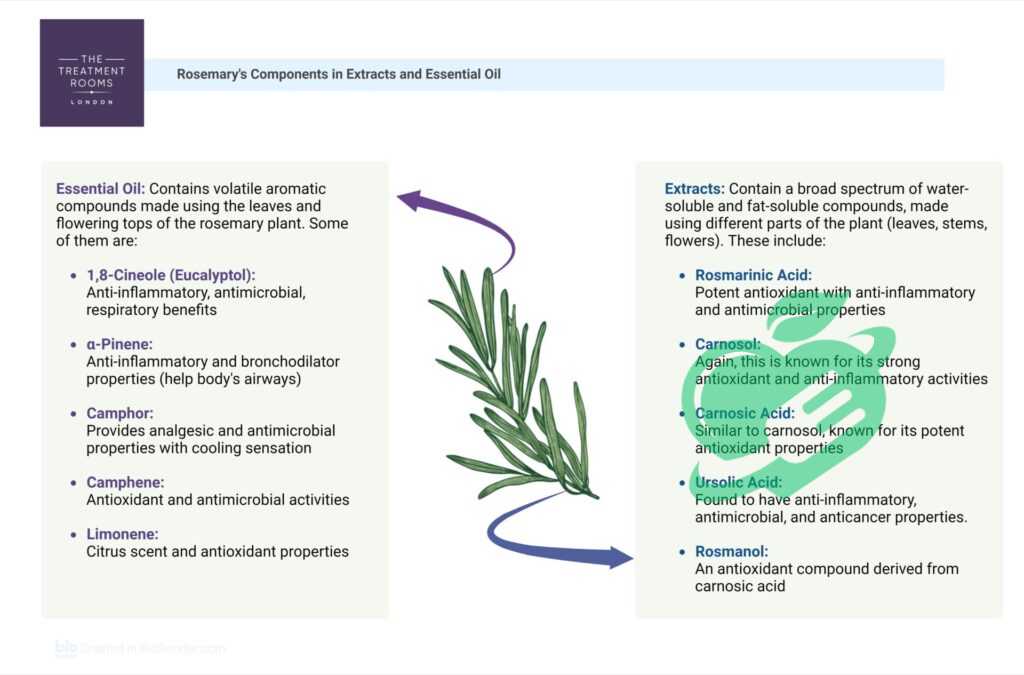
Composition and Properties of Rosemary Oil
Chemical Composition
Diving deeper into rosemary oil, its chemical composition is quite fascinating—an intricate blend of various compounds that contribute to its aroma and therapeutic effects. The primary constituents include:
- Cineole (Eucalyptol): Known for its refreshing scent, it can help improve respiratory function.
- Camphor: Offers stimulating properties and provides a warming sensation.
- Borneol: Acts as a mild sedative, promoting relaxation and mental clarity.
- Rosmarinic Acid: A potent antioxidant that helps combat oxidative stress.
This unique cocktail of components explains why rosemary oil is widely utilized in aromatherapy, personal care products, and even culinary applications. For instance, whenever I add a few drops of rosemary to my diffuser, the invigorating fragrance transforms the ambiance of my living space, creating an energizing atmosphere that boosts my productivity.
Therapeutic Properties
The therapeutic properties of rosemary oil are as diverse as its chemical composition. Its historical uses as a remedy have undergone scientific validation, highlighting its effectiveness in various wellness applications. Here are some of the notable therapeutic benefits:
- Antioxidant Effects: Rosemary oil is packed with antioxidants that help neutralize free radicals in the body, promoting overall health.
- Anti-inflammatory: Rosemary oil’s compounds can reduce inflammation, making it beneficial for conditions like arthritis or muscle soreness.
- Cognitive Function: Research suggests that inhaling rosemary may help enhance memory and concentration, making it an excellent addition to study sessions or work environments.
- Stress Relief: Rosemary’s calming effects can reduce stress and anxiety, providing mental clarity and relaxation.
By incorporating rosemary oil into daily routines, individuals can harness these therapeutic properties, unlocking a range of health benefits. Whether it’s through inhalation, topical application, or immersion in skincare, rosemary continues to offer versatile solutions that reflect its longstanding legacy in holistic health.
Read also: The Hair Health Diet: How to Eat Your Way to Gorgeous, Strong Hair.
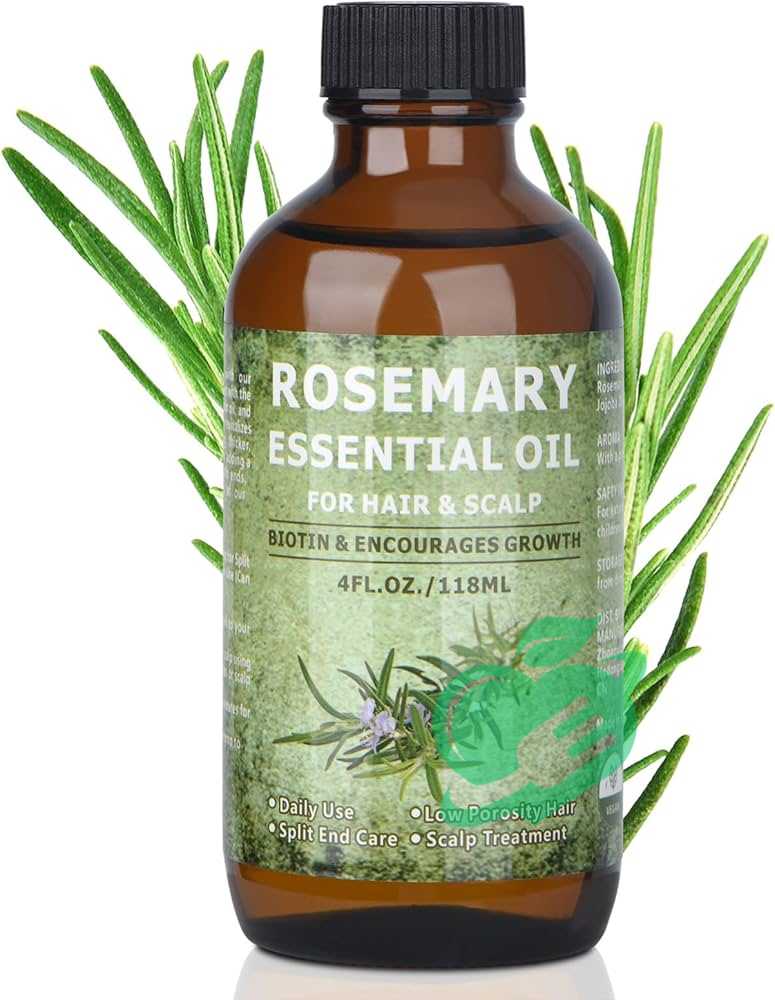
Health Benefits of Rosemary Oil
Improving Cognitive Function
One of the most intriguing benefits of rosemary oil is its positive impact on cognitive function. Studies have shown that the inhalation of rosemary can improve memory retention and concentration. For example, I recall using rosemary in my office during a particularly challenging project. The scent filled the room and created an energizing atmosphere, which helped me stay focused and productive.
- Memory Enhancement: Research indicates that rosemary oil may enhance memory performance, particularly in tasks involving recall.
- Mental Clarity: Rosemary can help individuals feel sharper and more alert throughout the day by reducing mental fatigue.
This makes rosemary oil an excellent companion for students or professionals requiring sustained attention and mental agility.
Relieving Stress and Anxiety In our fast-paced lives, managing stress and anxiety is crucial to overall health. The mountain acts as a natural remedy to relieve these feelings. A soothing scent can lower levels of cortisol, the hormone responsible for stress. Think about this: After a long day, I often pour a few drops of rosemary oil into my bath water. The soothing fragrance envelops me, turning my space into a calm oasis, and washing away the worries of the day.
- Aromatherapy: Diffusing rosemary oil in the home or office can create a calming environment conducive to relaxation and stress relief.
- Massage Oil: Blending rosemary with carrier oil for a massage can help soothe muscle tension and promote relaxation.
Rosemary oil promotes hair growth.
Rosemary oil is not just for uplifting moods; it also has remarkable benefits for hair health. It is believed to stimulate hair follicles, promote circulation in the scalp, and enhance hair growth. Here’s a personal tip: I’ve started adding a few drops of rosemary to my regular shampoo and conditioner. Not only does it smell divine, but I’ve also noticed my hair feels healthier and appears thicker.
- DHT Reduction: Rosemary oil may inhibit the formation of dihydrotestosterone (DHT), a hormone linked to hair loss.
- Nourishing Properties: Its antioxidant and anti-inflammatory properties may help keep the scalp clean and promote healthy hair.
How to use rosemary oil on hair?
Researchers think that rosemary oil promotes hair growth for various reasons, primarily because it enhances blood circulation and reaches the blood vessels that provide nourishment to the hair. Here are a few ways to use rosemary oil: You can start by applying one of these methods twice a week and then increase the frequency if you feel confident in the oil’s effects on your scalp.
Massage the scalp with rosemary oil.
After showering, gently massage five drops of rosemary oil mixed with an equal amount of olive oil into your entire scalp. You can wash your hair after applying the oil, but make sure to leave it on your scalp for 5 to 10 minutes beforehand.
Adding rosemary oil to shampoo
Rosemary oil can be mixed into hair moisturizer or cream. It’s recommended to use 5 drops for every 28 grams of shampoo or cream. Alternatively, you can add two to three drops of rosemary oil directly to your palm along with the shampoo when using it.
Adding rosemary oil to homemade shampoo
Many individuals choose to create their shampoo at home, and if you fall into this category, you might consider adding rosemary oil to your mixture.
Read also: Unraveling the Mystery: Common Triggers of Painful Urination

Uses of rosemary oil in cosmetics and skin care
Skin Rejuvenation
Rosemary oil is making waves in the beauty world, especially when it comes to skin rejuvenation. Its potent antioxidant properties help in combating free radicals, which are notorious for accelerating the signs of aging. I love incorporating rosemary oil into my skincare regime, and I’ve seen a noticeable difference in my skin’s texture and brightness. Some of the key benefits for skin rejuvenation include:
- Antioxidant Protection: Helps neutralize harmful free radicals, preventing premature aging.
- Anti-inflammatory Properties: This can soothe irritated skin and reduce redness, making it beneficial for those with sensitive skin types.
- Regenerating Effects: Promotes cellular turnover, giving the skin a fresh, youthful glow.
One easy way to use rosemary oil for skin rejuvenation is to create a simple DIY serum. Just mix a few drops of rosemary with a carrier oil, like jojoba or sweet almond oil, and apply it to your face before bedtime. This easy routine has worked wonders for me, turning my nighttime ritual into a nourishing experience.
Rosemary oil for scalp and hair
When it comes to scalp and hair care, rosemary oil shines brightly. As mentioned earlier, rosemary stimulates circulation and can help promote healthy hair growth. It has also been known to strengthen hair and reduce dandruff, making it a multi-tasking hero in your haircare routine. Imagine this: after a long week, I treat myself to a rosemary oil scalp massage, mixing a few drops with a carrier oil and massaging it into my scalp. It not only feels luxurious but revitalizes my hair follicle health as well. Key benefits for scalp and hair care include:
- Dandruff Reduction: Its antifungal properties can help eliminate and prevent dandruff.
- Hair Thickness: Regular use may promote thicker, fuller hair.
- Scalp Nourishment: Hydrates the scalp, leaving it healthy and balanced.
Incorporating rosemary oil into your beauty and skincare routine can lead to rejuvenated skin and luscious hair. With these simple steps, you can unlock the myriad of benefits this remarkable oil has to offer, ensuring that you feel and look your best, day after day.
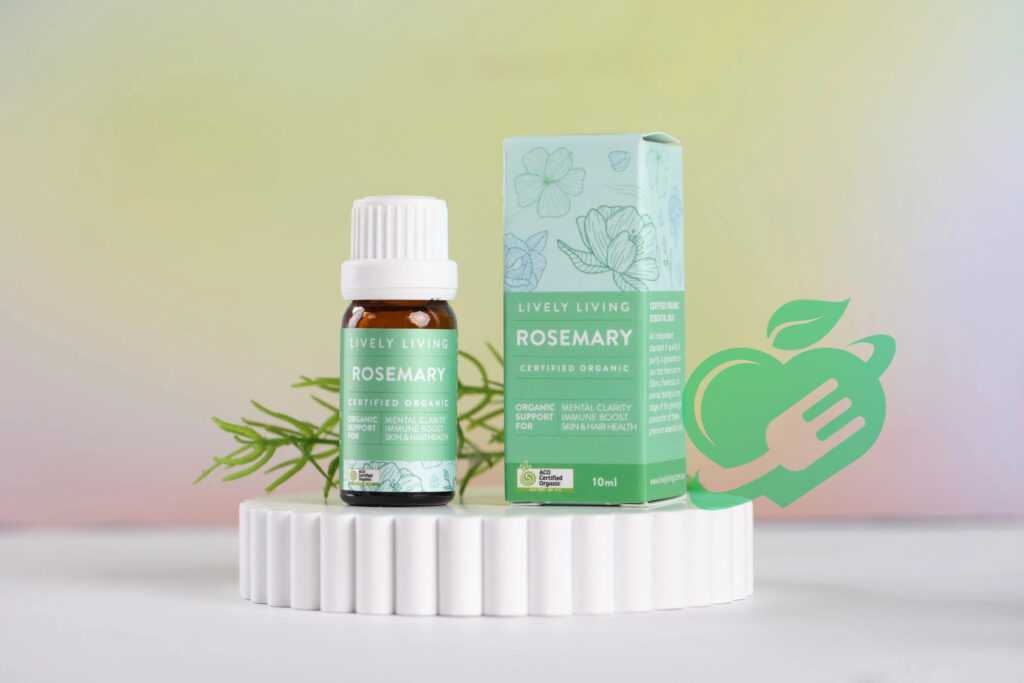
Culinary Applications
Flavoring in Cooking
When it comes to culinary applications, rosemary oil is a favorite among cooks and food enthusiasts alike. Its rich, aromatic flavor can elevate a dish from ordinary to extraordinary. I remember the first time I used rosemary in a roasted vegetable medley; the fragrance wafting through the kitchen was nothing short of intoxicating! The oil’s versatility allows it to complement a wide range of ingredients. Here are some excellent ways to use rosemary oil for flavoring in cooking:
- Marinades: Just a few drops can transform meats and vegetables, adding depth to any marinade.
- Baked Goods: Incorporate it into bread or scones for an unexpected twist that surprises the palate.
- Infused Oils: Combine rosemary oil with other oils to create flavored oils. Drizzle over salads or use as a dip for bread.
It’s essential to remember that rosemary oil is potent, so a little goes a long way. Start with just a couple of drops, and adjust to your taste preference.
Preservative and Antioxidant Properties
In addition to its flavor-enhancing abilities, rosemary oil boasts remarkable preservative and antioxidant properties, making it a valuable ingredient in food storage. For instance, I often add a drop of rosemary to homemade salad dressings to help keep them fresher longer. Some crucial benefits of using rosemary in culinary settings include:
- Natural Preservative: Its antimicrobial properties help inhibit the growth of certain bacteria and fungi, extending the shelf life of foods.
- Antioxidant Power: Rosemary oil is rich in antioxidants, which help slow down the oxidation process, preserving the color, flavor, and nutritional value of various foods.
Consider this: if you’re preparing a batch of homemade jams or sauces, a few drops of rosemary oil not only enhance flavor but also work wonders in prolonging freshness. In conclusion, whether used for flavoring or its preservative qualities, rosemary offers endless culinary applications. Embracing this ingredient in the kitchen can lead to delicious dishes while also ensuring food safety and longevity. So next time you’re cooking, don’t forget to reach for that little bottle of rosemary!
Read also: 3 simple ways to stop negative thoughts
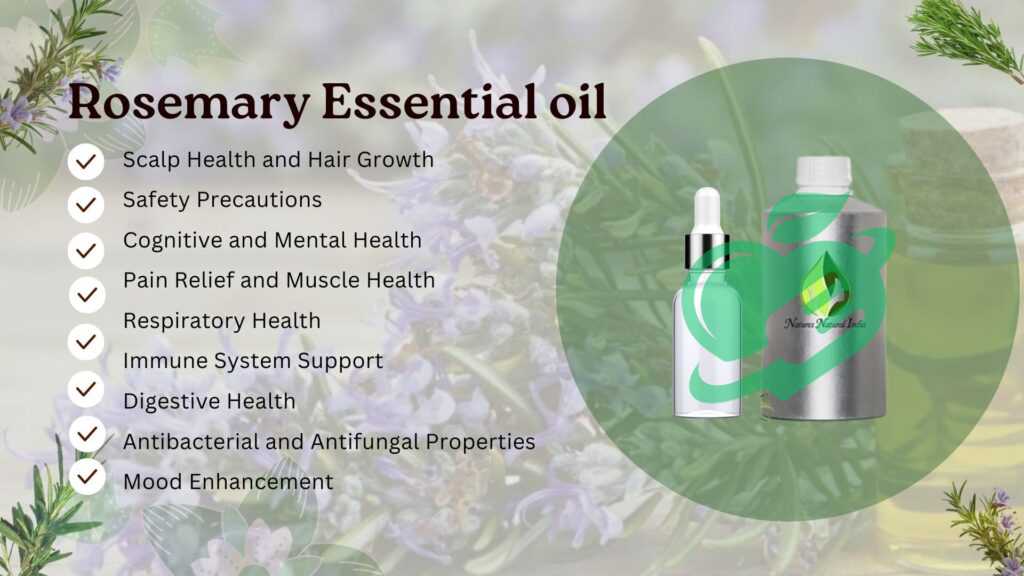
Aromatherapy and Home Remedies with Rosemary Oil
Room Fragrance and Freshener
Rosemary oil is not only a culinary delight but also a fantastic addition to the world of aromatherapy and home remedies. Its invigorating scent can uplift any space, turning an ordinary room into a refreshing haven. I often diffuse in my living room while entertaining guests and the aroma never fails to impress. Creating an inviting atmosphere with rosemary is quite simple. Here are some easy ways to use it as a room fragrance and freshener:
- Essential Oil Diffuser: Add a few drops of rosemary oil to a diffuser with water. The gentle mist will fill the room, creating a calming and refreshing ambiance.
- Homemade Room Sprays: Mix water with rosemary in a spray bottle for a quick DIY room spray. A few sprays throughout the house can help eliminate odors and give any room a natural fresh scent.
- Potpourri: Incorporate rosemary into your potpourri mix. The dried herbs will absorb and slowly release the oil’s pleasant fragrance, keeping the air smelling delightful.
What’s more, its scent is not only pleasant but also believed to enhance focus and clarity, making it perfect for home offices or study areas.
Natural Remedies for Ailments
In addition to its aromatic benefits, rosemary oil is renowned for its natural healing properties, making it a staple in home remedies for various ailments. I regularly turn to rosemary when I experience headaches or muscle tension, and I’ve found it to provide relief. Here are some ways to harness rosemary for natural remedies:
- Headache Relief: Combine a few drops of rosemary oil with a carrier oil and massage it onto the temples. Its soothing properties can help alleviate tension headaches.
- Muscle Relaxation: Mix rosemary with a carrier oil and apply it to sore muscles for a calming effect after a workout.
- Respiratory Support: Inhaling may help relieve congestion and promote clearer breathing during cold seasons.
Benefits of rosemary oil for sex
Research has shown that rosemary oil offers numerous advantages for enhancing sexual performance. It is thought to be rich in antioxidants, which can enhance the reproductive system’s functions and safeguard it from harm, particularly in individuals with diabetes. Additionally, it is known to improve semen quality and raise testosterone levels in the bloodstream.
How to use rosemary oil for sex:
Gently massage the lower back and lower abdomen using rosemary oil mixed with the other oils previously mentioned.
- At bedtime, use a spray bottle to apply rosemary oil.
- Add a small amount of concentrated rosemary oil to your pillows and bedding.
- Pour a few drops of diluted rosemary oil into a warm bath.
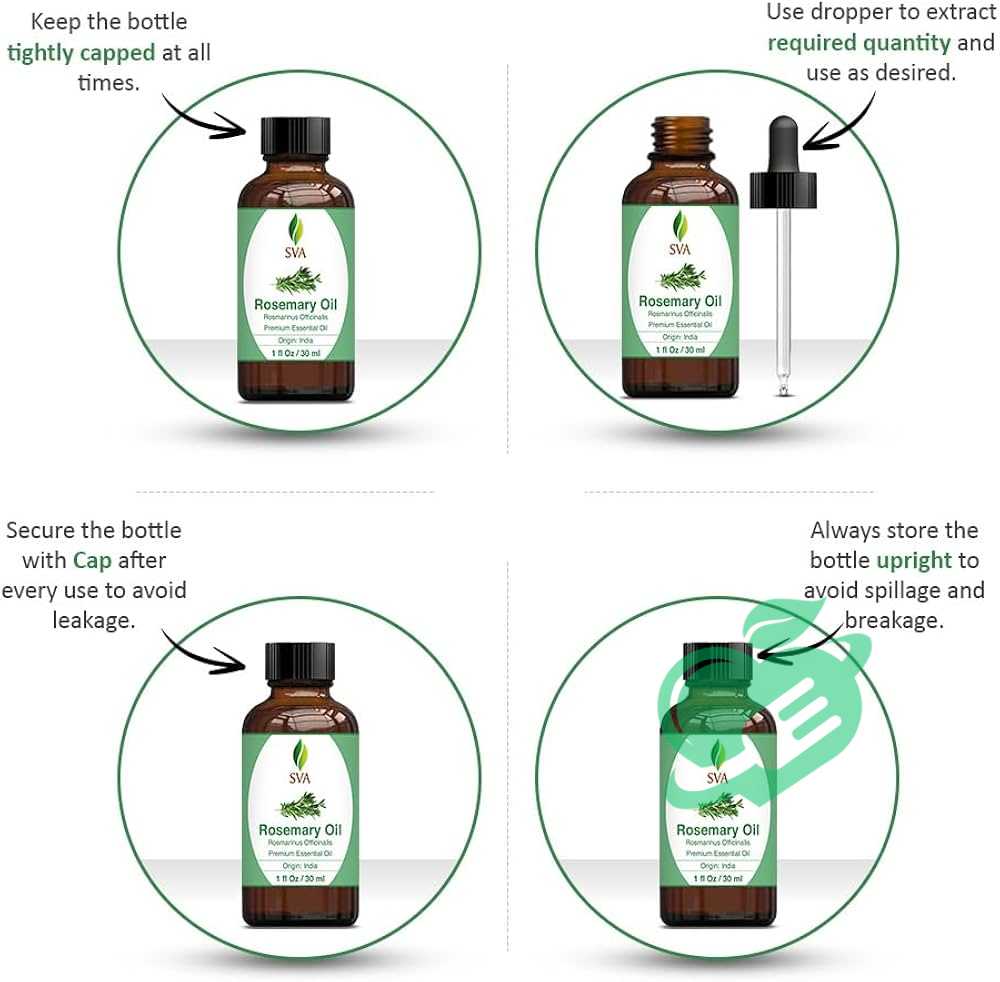
Safety Precautions and Side Effects of Rosemary Oil
Dilution Guidelines
While rosemary oil offers numerous benefits, it’s essential to use it safely to prevent any potential adverse reactions. One of the most crucial aspects of using essential oils like rosemary is proper dilution. I’ve learned from experience that using undiluted essential oil can cause skin irritation—an early mistake I made when trying to jump on the EO bandwagon. Here are some straightforward dilution guidelines to follow:
- For Topical Use: Always dilute rosemary oil with a carrier oil, such as coconut, jojoba, or olive oil. A general rule of thumb is to mix 2-3 drops of rosemary per 1 teaspoon of carrier oil.
- For Children and Sensitive Skin: Use a heavier dilution, such as 1 drop of rosemary oil per 1 tablespoon of carrier oil, especially when applying on children or sensitive skin.
- For Aromatherapy, add 5-6 drops of rosemary to water when using a diffuser, as directed by the manufacturer’s instructions.
By taking these simple precautions, you can enjoy the therapeutic effects without risking irritation or sensitivity.
Read also: Discover the Benefits of Vitamin A for Shiny, Healthy Hair.
Potential risks of rosemary oil
Despite its many advantages, rosemary oil is not without its risks. It’s essential to be aware of potential side effects or contraindications. During my early days of experimenting with essential oils, I discovered that staying informed is vital to safely harnessing their benefits. Some key points to consider regarding potential risks include:
- Allergic Reactions: Some individuals may be sensitive to rosemary. Conducting a patch test by applying a small diluted amount to the skin can help identify potential reactions.
- Pregnancy and Breastfeeding: Pregnant women should consult a healthcare provider before using rosemary, as it may stimulate the uterus in high doses.
- Medical Conditions: Rosemary may exacerbate epilepsy and high blood pressure, so it should be avoided by those with these conditions.
Read also: 3 unexpected causes of shortness of breath and how to treat them.

How to Use Rosemary Oil
Inhalation Techniques
Using rosemary oil through inhalation is one of the simplest and most effective methods to enjoy its aromatic and therapeutic benefits. I often turn to inhalation techniques, especially when I need a quick pick-me-up during a busy day. The refreshing scent of rosemary can boost your mood, enhance concentration, and even relieve stress. Here are some popular inhalation techniques you can try:
- Diffuser Use: Add 5-10 drops of rosemary oil to a diffuser filled with water. This method disperses the oil into the air, allowing you to breathe in the rejuvenating aroma. I love doing this in the morning to energize my space for the day ahead.
- Steam Inhalation: Boil water and pour it into a bowl. Add a few drops of rosemary, then lean over the bowl, covering your head with a towel. Inhale deeply for several minutes. This technique works wonders during cold and allergy seasons, helping to clear congestion and promote easier breathing.
- Personal Inhaler: You can also create a personal inhaler by adding a few drops of rosemary to a cotton ball and placing it in a small container. Whenever you need a boost, just take a whiff!
Methods of topical application of rosemary oil
The topical application of rosemary oil is another fantastic way to harness its benefits, especially for skin, hair, and muscle relief. I’ve found incorporating it into my daily routine incredibly rewarding, but proper application is key. Here’s how to effectively use rosemary topically:
- Massage Oil: Dilute rosemary oil with a carrier oil (such as coconut or sweet almond), using a ratio of about 2-3 drops of rosemary per teaspoon of carrier oil. Massage into sore muscles for relief and relaxation.
- Skincare: For a revitalizing effect, add one drop of rosemary to your favorite moisturizer or serum. I often mix it into my nighttime regimen for added skin rejuvenation.
- Scalp Treatments: Mix a few drops of rosemary with your shampoo or conditioner, or create a scalp massage oil with a carrier oil to promote healthier hair growth.
Because your health is the most valuable thing you have and the most precious thing we care about, we always recommend that you consult your specialist doctor in everything related to your health and daily life. Everything we provide here is for awareness purposes only and does not replace consulting a doctor. Every person has a unique condition that deserves special care, and we are here by your side, working passionately to provide the information you need. Always follow us, because we write for you with love and sincerity to remain a source that inspires you with hope and supports you on your journey towards a better life.



